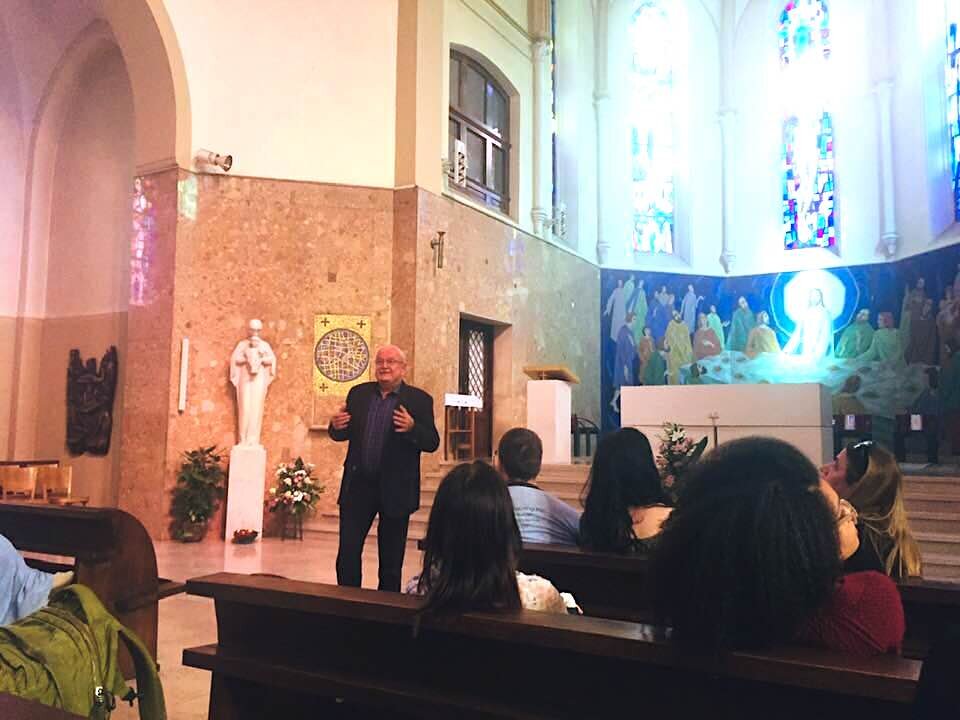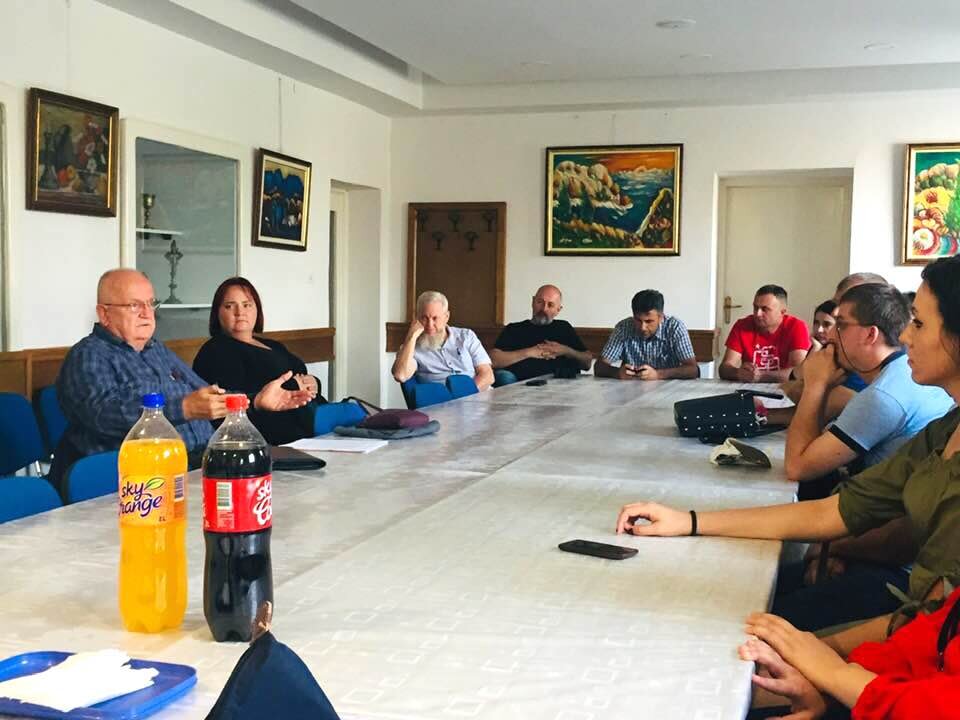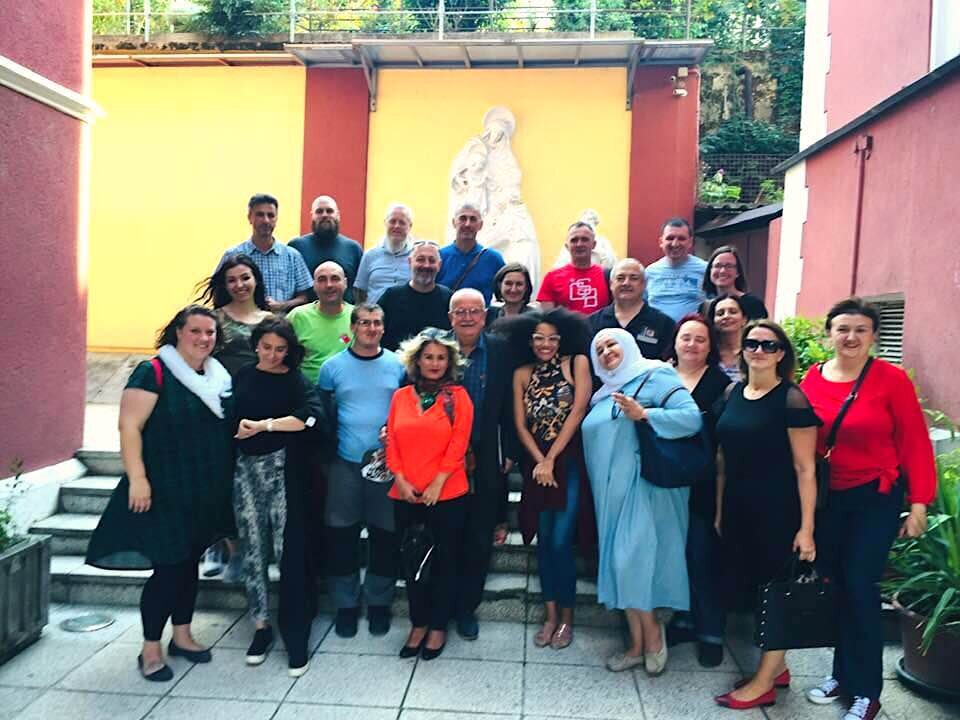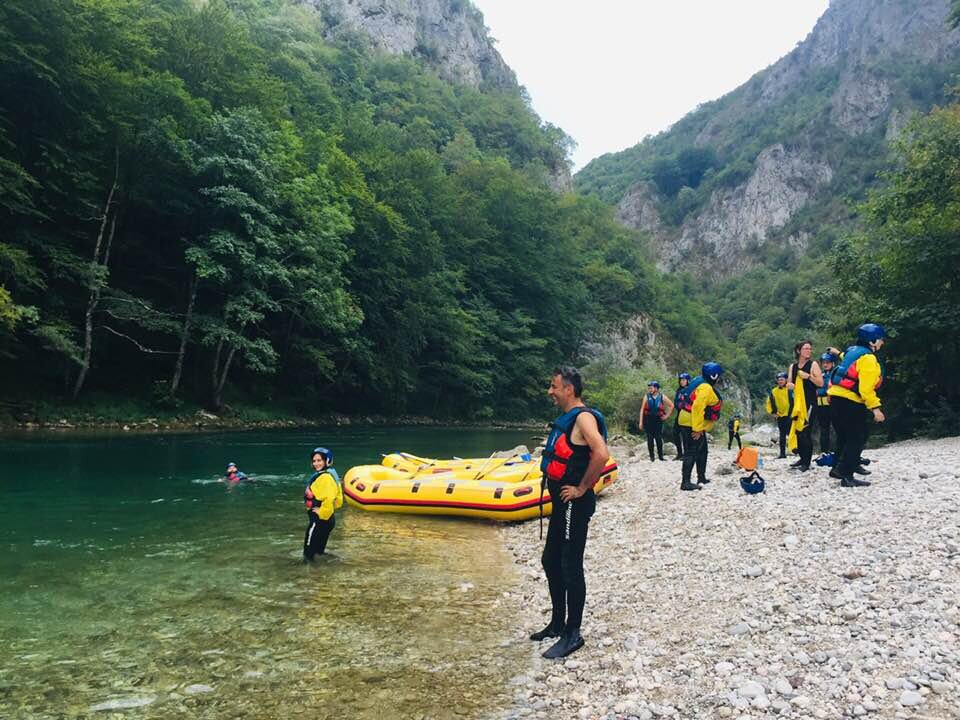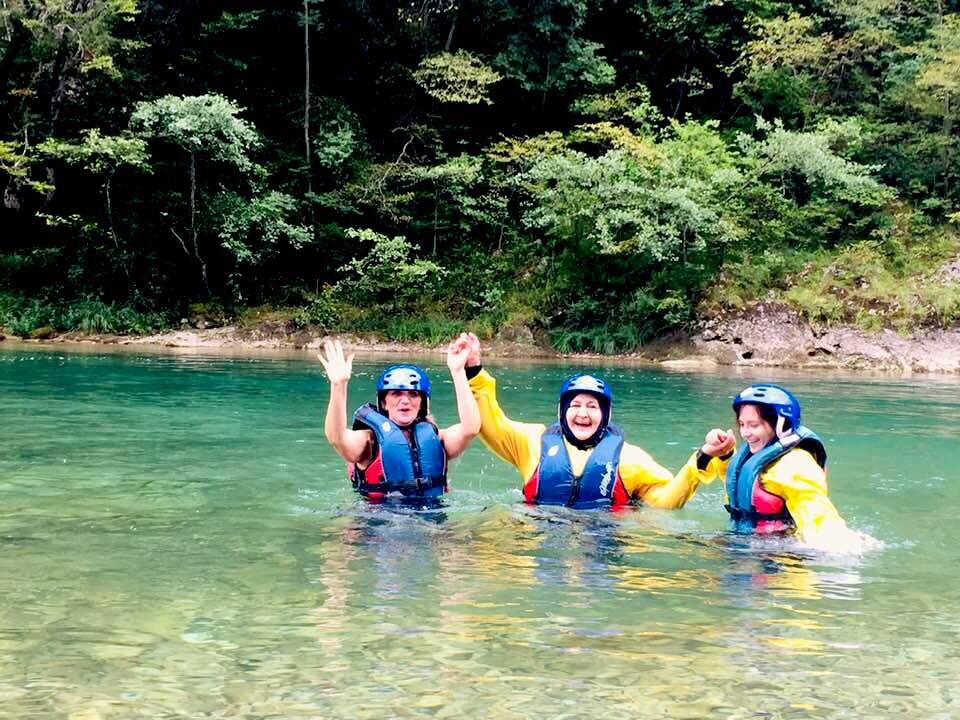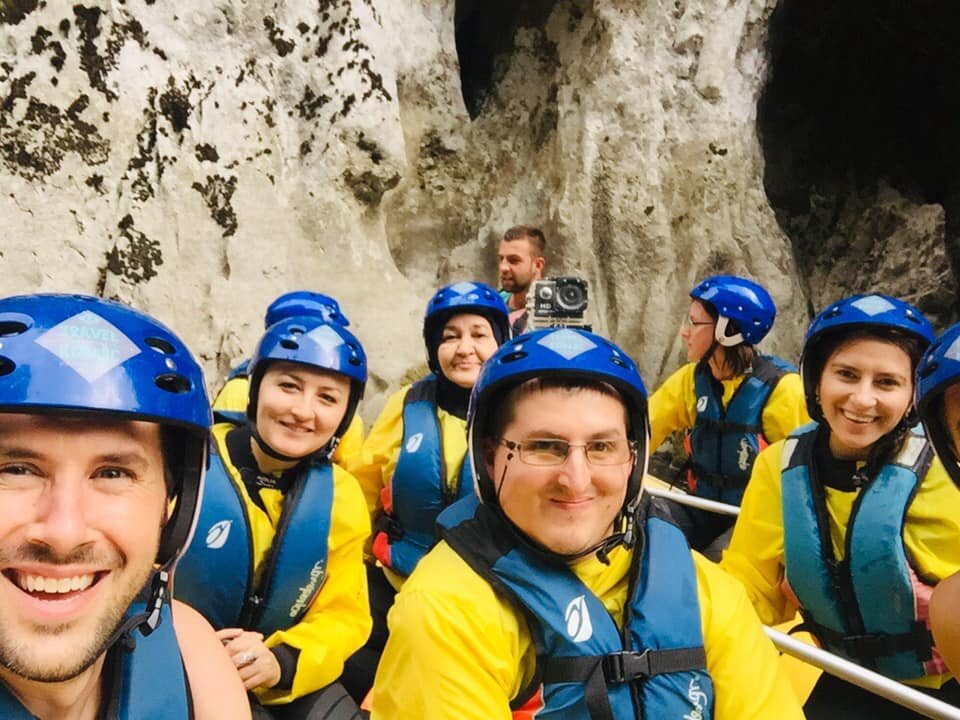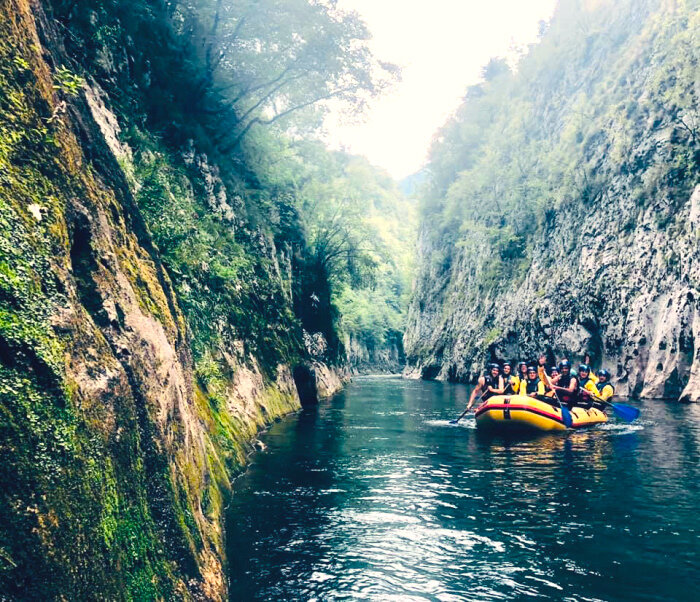What Happened When Bosniaks, Croats, Serbs, and Americans Practiced Peacemaking… Together
by Bryan Carey
“This trip completely expanded my view of the Gospel, God’s mission, and our work as the followers of Jesus.”
– American Protestant participant
Our Bosnia “Catalyze” peacemaking trip wrapped up a couple weeks ago after an exhilarating and rewarding 10 days filled with new relationships, dialogue, history, and learning across religious and ethnic differences. With us were eight Americans (foreign participants), numerous Bosnian peacemaking practitioners (our teachers and guides to peacemaking in Bosnia), and 15 women and men from all over the Balkan region (local participants). The foreign participants from the U.S. didn’t come all the way to Bosnia and Herzegovina (BiH) to “help” or “serve” local people. Instead, they came as co-learners, joining locals to consider how we all might collaboratively work for peace and justice across barriers of ethnicity, culture, political persuasion and faith. As we learned from local voices about the region’s beautiful and broken history, these American participants reflected about their own communities in the States, discussing Protestantism’s often narrow understanding of the Gospel and wrestling with how we might live into a renewed, holistic vision of God’s mission to heal all of creation.
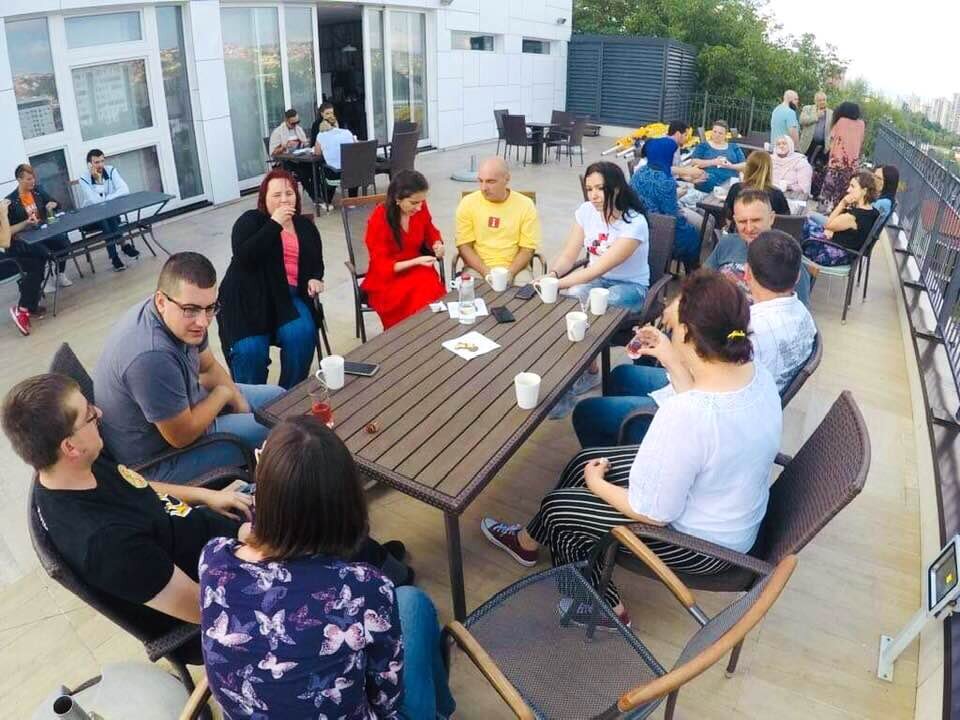
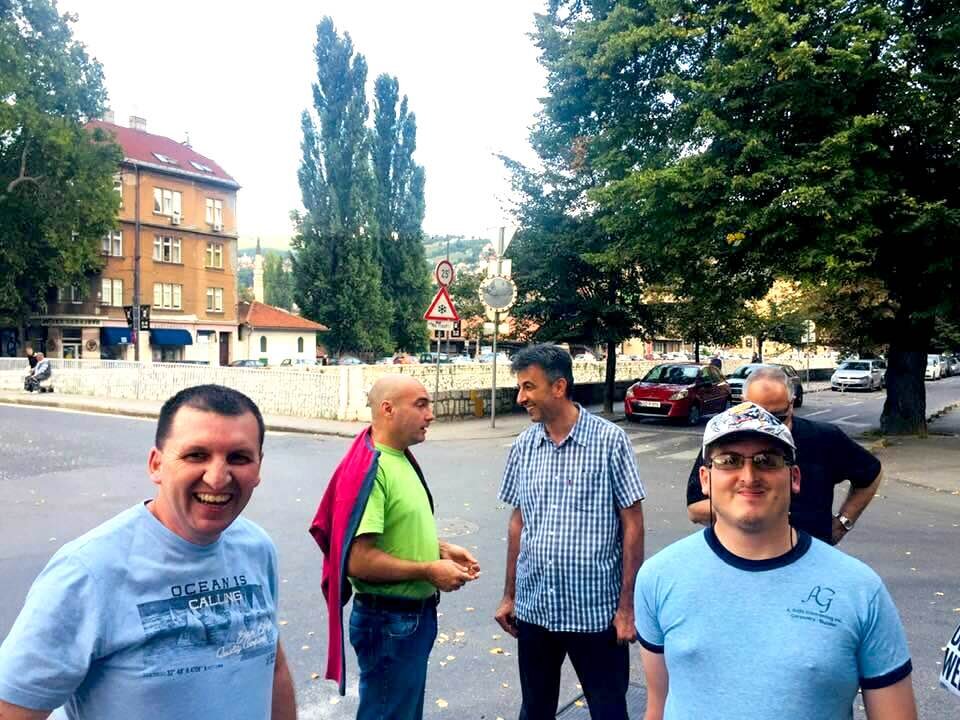
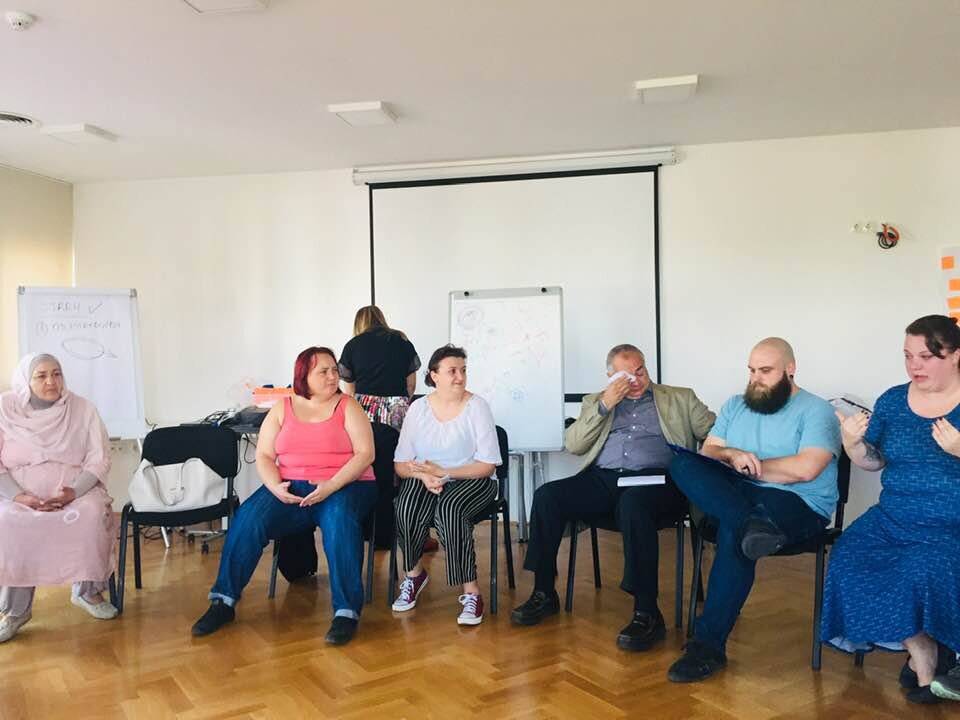
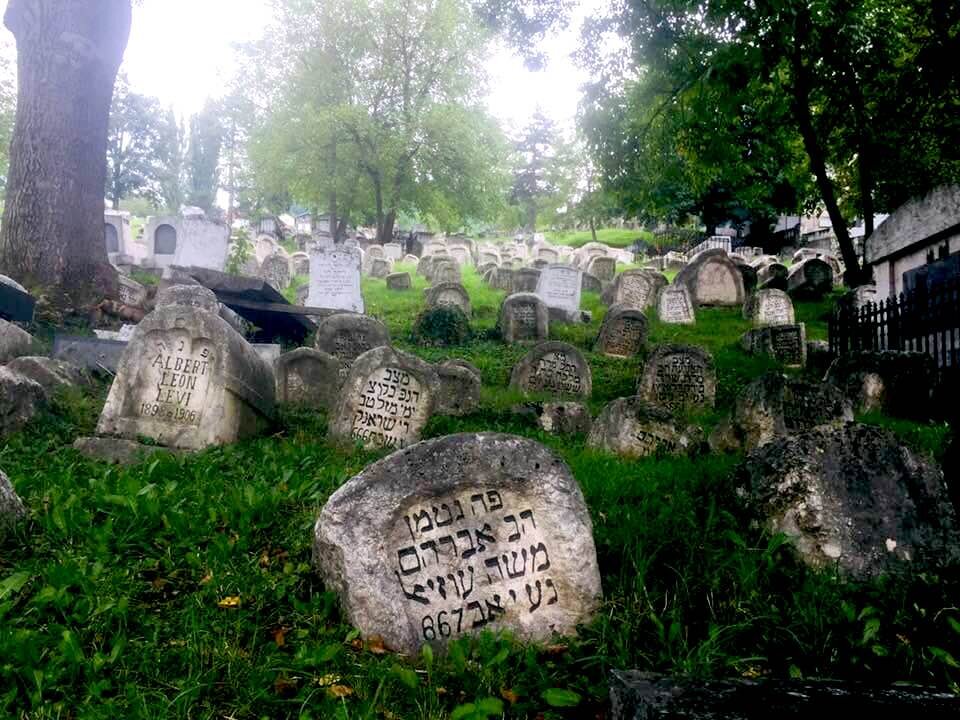
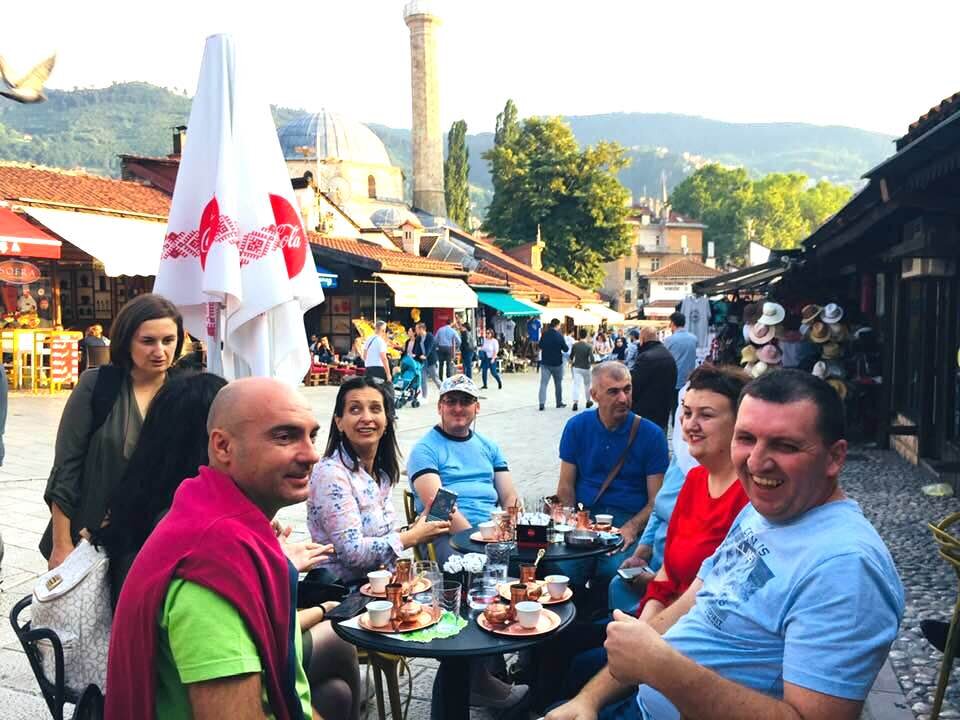
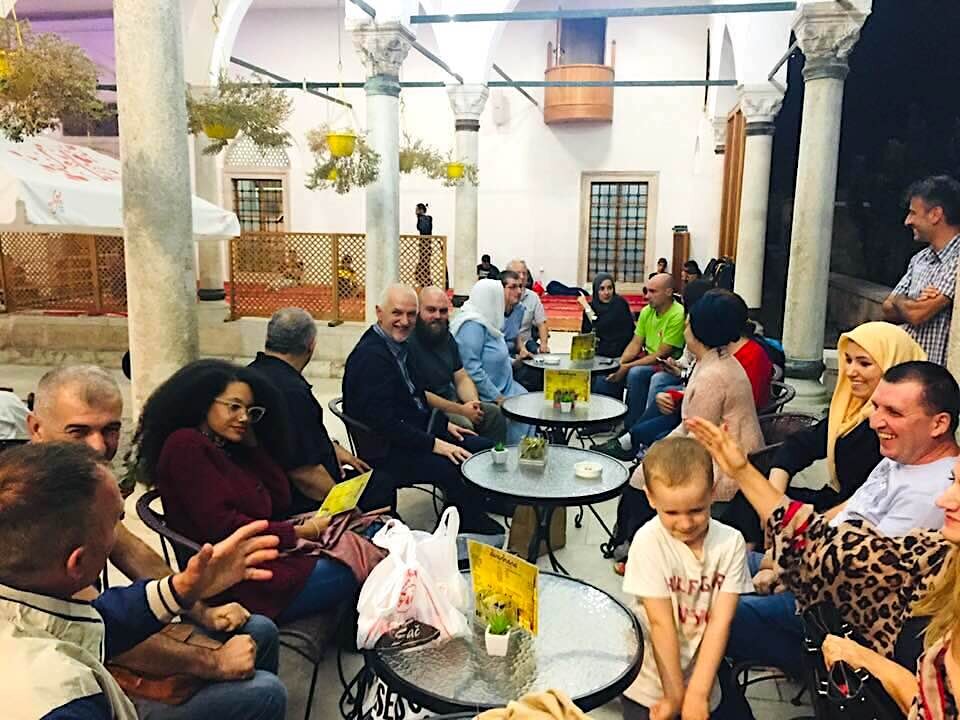
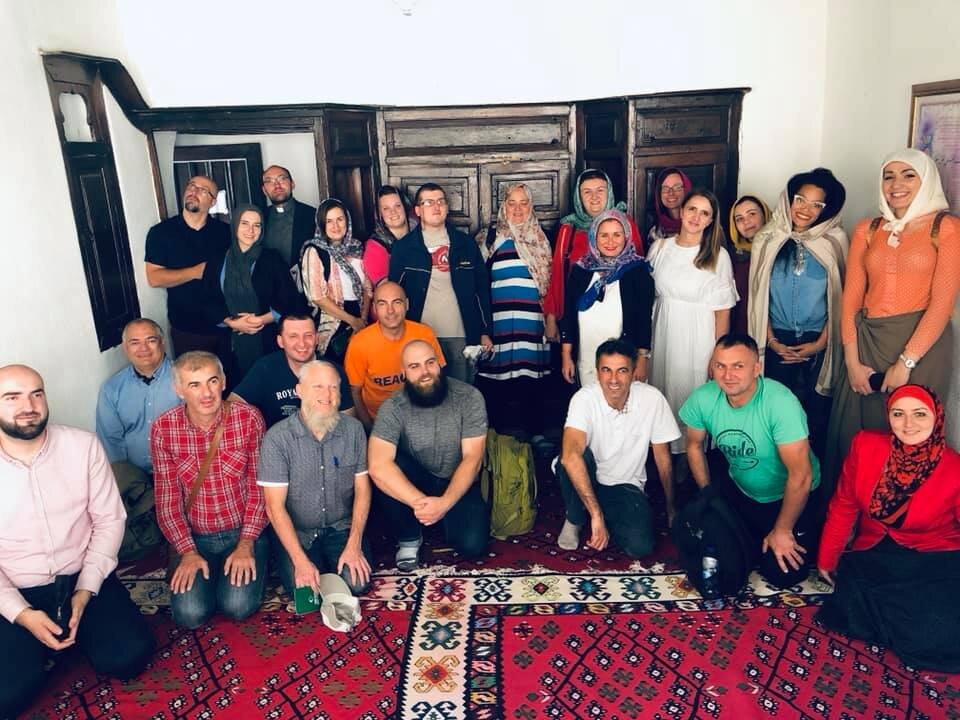
“Please bring more self-reflective and minority voices from the West. Their perspectives are so valuable to us in BiH to see how the challenges we face are so similar everywhere.”
– Serb participant
From Day 1, the foreign group found themselves making immediate parallels between BiH and the United States, citing America’s own set of social divisions, structural injustice, and selective understandings of history. As one participant put it, “We Americans have a poor track record throughout our own history, so we can never consider ourselves as morally superior in any way.” This self-reflective posture helped foster a rare, safe space for local Bosniaks, Croats, and Serbs to demonstrate the same qualities of humility and openness to learn with one another. But the combination of foreigners and locals in these types of conversations weren’t just helpful for those from the Balkans. As one foreign participant shared with me, for example, “As an African American woman, this trip was empowering for me to recognize how important my experiences and perspectives are for other Westerners and especially for people in places like Bosnia and Herzegovina.”
“Discussing challenges with the foreign group helped us locals see how important it is to prevent challenges and trauma from being (and staying) swept under the rug.”
– Local Bosnian participant from a family with mixed religious backgrounds
Among the local participants were four Serb Orthodox individuals from four different regions in the Balkans (Bosnia, Serbia, and the two historic autonomous provinces of Serbia, Vojvodina and Kosovo) as well as Muslim and Catholic participants from around Bosnia & Herzegovina. We even had a participant from from Montenegro. Hosting such a diverse group might quickly have created challenges, but this group was absolutely amazing. They were willing to share from their personal stories and experiences rather than focus on their political differences, and they listened deeply to empathize with others’ stories and perspectives. Local Bosnians born after the war heard about Muslims being thrown into concentration camps during the war, stories they’d never heard from their parents or grandparents. Muslims listened and empathized with Serb Orthodox narratives and historic trauma in a way they never had before. Each individual ethnic and religious group had at least a few individuals who were willing to reflect critically and openly about their own “side,” which allowed the group as a whole to start to lift up the proverbial rug and bring to light long-held issues of historic trauma, fear and prejudice.
“You could write the most eloquent sermon about peacemaking and its necessity, but nothing could move Bosnians more than the ringing of those bells or the hospitality of Father Radivoje’s greeting.”
– Bosnian Protestant participant
There were moments during the trip when we foreigners realized that so much more was happening around us than we could ever understand. Just as an example, after a long day in the beautiful and historic city of Mostar, we visited the city’s old Orthodox Church for a conversation with the priest. As we arrived, the church bells began ringing. The bells are rarely heard because they’re saved for incredibly rare occasions, like to announce the arrival of important guests (historically, the Serbian King, the Sultan of the Ottoman Empire, the Russian Czar, etc.). Father Radivoje Krulj, the priest of the historic Orthodox Church in Mostar and a true peacemaking heart, insists that interfaith meetings to build trust and work toward collaboration, like Catalyze, are most essential for our world today – so he rang the bells for our arrival. The meaning of the bells and their symbolism brought quite a few of the local participants to tears (which made a few of us foreigners recognize that something deep was happening even before their significance was explained to us). As we entered the church, Father Radivoje greeted the visibly-Muslim participants with the traditional Muslim greeting in Arabic, “Salaam Aleikum” (“Peace be with you”). Much more could be said about our time together, but Father Krulj’s hospitality, humility, realism, self-critical posture and love left a deep impact on the group.
“I learned that evil and wickedness are the consequence of fear; I learned that evildoers must be embraced and told, ‘You don’t need to be afraid’; I learned that we must continue to pray for those who live with fear.”
– Serb participant
Another memorable moment for locals were Friar Ivo Marković’s words, “Ne bojite se!” (“Do not be afraid!”). He insisted that our first or even only sin is fear. Former Yugoslav countries have progressed an incredible amount since the breakup of Yugoslavia, yet it’s difficult for foreigners to understand the everyday fear and worry that normal folks in the Balkans sometimes experience. We repeatedly heard stories from peacemakers and from local participants about the tangible risks for locals to be involved in peace work: losing their job, getting transferred to a remote village as a priest or imam, being politically blacklisted or socially ostracized, being labeled as a traitor to one’s own group, or even losing their life in extreme cases. Two of the local participants had previously worked in political parties which actively promoted mutual understanding and peace across boundaries of faith and ethnicity, and they each had personal friends who were assassinated because they became too prominent and their work too impactful. We Americans were challenged to ask ourselves, “How much does it really cost for me to reach across the political aisle, or for me to genuinely try to understand the experience of people of color, religious minorities, the LGBTQ community, or any other group that my community sees as wrong, bad, or even a threat?” Reaching out in order to honestly seek to understand another person can feel scary or overwhelming, but Jesus commands us to love our neighbor and even our enemy. Ne bojite se! Do not be afraid!
“Dear Christians, it’s time to get out of the mosque!”
– laughed Orhan Hadžagić (Bosnian Muslim trip facilitator) at around 10:30pm, hours after we’d planned to leave a local mosque
The trip was also an incredible amount of fun. After staying about twice as long as we’d initially planned at a local mosque chatting with an imam and his family (time flew by because of such great conversations!), one of the facilitators got a call from his wife urging us to please let everyone go home to get some sleep. And this was only Day 1 of our time together!
“Druženje” (socialization or hangout time) was an important component of Catalyze, and the trip was designed so that foreigners and locals could just have some life-on-life time and begin to build friendships. We even took a whole afternoon to go whitewater rafting down the Neretva River (it’s been a personal dream of mine to have Muslims, Orthodox Christians, Catholics, and Protestants all rafting together). According to a few local participants who had attended peace and reconciliation seminars in the past, this “druženje” component is rarely highlighted, if ever. But it was clear to us as facilitators and to the participants as the week went on that informal meals, socialization, and fun activities were just as important for everyone involved as intentional conversations about challenging subjects.
As the Catalyze week ended, one local participant shared with me about how he posted a picture of the group together on Facebook and a number of his friends immediately commented that it was a great photoshop job. It couldn’t be possible, they thought, for such a diverse group of people to seemingly connect so well. In an era of fake news, my friend repeatedly insisted that he did participate in this conference, which had brought people together across both ethnic and religious divides, and that the experience was even better than any of his pictures could show.






